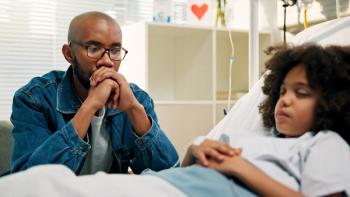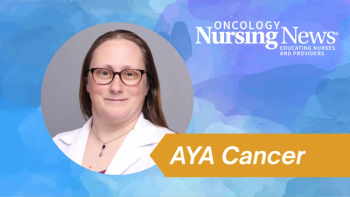
Addressing the Need, One Survivor at a Time
For survivors of childhood cancer, survivorship programs can offer assistance for their families as much as for them.
Cancer. It’s a word we hope to never hear in reference to ourselves or someone we love. As a parent, it’s something I hope to never hear in reference to one of my children. But what if you are suddenly thrust into the world of childhood cancer? No warning; your child is now one of those kids, like the ones you see on TV on St. Jude’s commercials. What now?
The array of emotions must be endless. How did this happen? Why did this happen? Did I do something to cause this? Are they going to die? What about my other children? My job? Money? The list goes on and on. The families receive so much information in such a short amount of time, as the practitioner rushes to begin treatment. A whirlwind…that’s the only way I know to describe it. As a nurse, your heart aches for them. What if this was your child?
Somehow the patient and family make it through treatment, some seemingly unscathed, some battered and broken, and some in between. But what happens when “remission” becomes the new reality? The first year or so is still a little structured, with scheduled scans and blood draws, but after that time, the survivor and family are released back into the world. Things are expected to return to normal. But is life ever really “normal” after such a life-altering experience?
If your world was turned upside down, would it really be that easy to get back to “normal life”? There will be ongoing needs, for the survivor and for the family members. This is where Childhood Cancer Survivorship Programs can make a huge impact in helping them return to “normal life.” Do the parents remember each and every chemotherapy drug their child received? Not likely. Do they know how much radiation their child received? Again, not likely. By providing the child and their parents with the child’s treatment summary, we are empowering them. They now have a complete, though condensed, picture of what they went through. This treatment summary can be given to all future practitioners who care for them.
Also providing them with a survivorship care plan can help them identify short and long-term side effects from the treatment they received so they can seek care accordingly. These programs also provide much needed individual and family counseling. Cancer affects the entire family, the survivor, the siblings, and the parents. Financial counseling is also available because the financial impact on the family doesn’t end when treatment ends. These programs also offer education on proper nutrition so the survivor can live as healthy a lifestyle as possible. More than that, it can be a place where the survivor and their family meet people going through the same thing they are. Someone understands. Someone has been there. “We’re not alone in this.”
Survivorship starts from the moment of diagnosis. We often get so focused on acutely treating the cancer that we forget about all the other needs the family has during such a stressful time. Be the advocate these children and their families need. Get them plugged into a survivorship center in your area. If there’s not one, shouldn’t there be?
Newsletter
Knowledge is power. Don’t miss the most recent breakthroughs in cancer care.
























































































